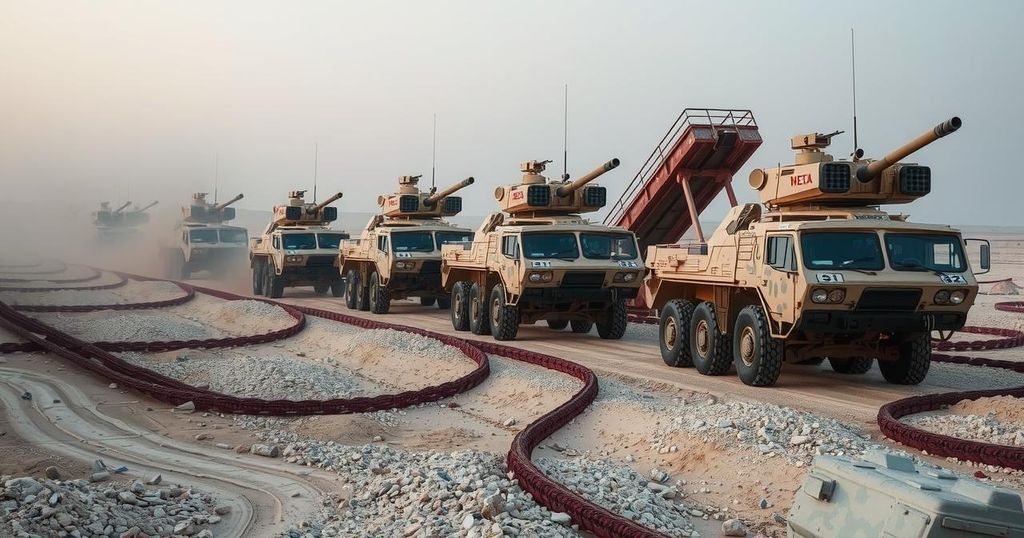In the aftermath of Bashar al-Assad’s overthrow, Russia is adjusting its military presence in Syria, pulling back from some positions while maintaining its key bases. Arab diplomats are convening in Jordan, advocating for a peaceful, inclusive transition for Syria’s political future. Amid heightened concerns of instability, including a resurgence of the Islamic State, the international community is discussing humanitarian aid and support for state institutions.
Recent geopolitical developments indicate that Russia is recalibrating its military presence in Syria, pulling back from frontline positions while retaining control of its key bases. Amidst ongoing diplomatic discussions involving officials from multiple countries in Aqaba, Jordan, there are growing concerns regarding the future of Syria following the ousting of President Bashar al-Assad by Islamist-led forces. The Arab foreign ministers have called for a peaceful and inclusive transitional process in Syria, emphasizing the need for representation of all political factions. Additionally, Iraq’s response to increased violence from the Islamic State adds another layer of complexity to the evolving situation.
On the diplomatic front, high-level talks are taking place among Arab, Turkish, and Western diplomats, underscoring the urgency to support a stable political transition. A UN envoy urged that critical state institutions in Syria must be protected to prevent further destabilization. The swift actions of foreign powers highlight the global ramifications of Assad’s removal, notably with Turkey set to reopen its embassy in Damascus after a lengthy closure.
Overall, as Syria grapples with its uncertain future, the interplay of military and diplomatic maneuvers by various stakeholders continues to shape the region’s trajectory. The situation remains fluid, with multiple actors vying to influence the direction of Syria’s next chapter.
The recent developments in Syria have marked a significant shift in the political landscape following the fall of President Bashar al-Assad. With the involvement of various international and regional powers, the need for a coherent political transition has become imperative. The intertwining of military strategies, particularly with Russia’s recalibrating presence, along with the response from Islamist groups and foreign diplomats, suggests a complex and rapidly evolving situation in the region. The calls from Arab nations for inclusivity in Syria’s transition process highlight the broader implications of this political upheaval.
The evolving dynamics in Syria following President Bashar al-Assad’s overthrow reveal a multifaceted landscape characterized by military adjustments, strategic diplomatic discussions, and growing regional concerns. The commitment of Arab nations to an inclusive transitional process alongside urgent calls from the UN to preserve essential state institutions underscores the critical juncture at which Syria finds itself. As international stakeholders navigate this turbulent period, the future of Syria remains uncertain, highlighting the need for concerted efforts to achieve stability and peace.
Original Source: www.france24.com






